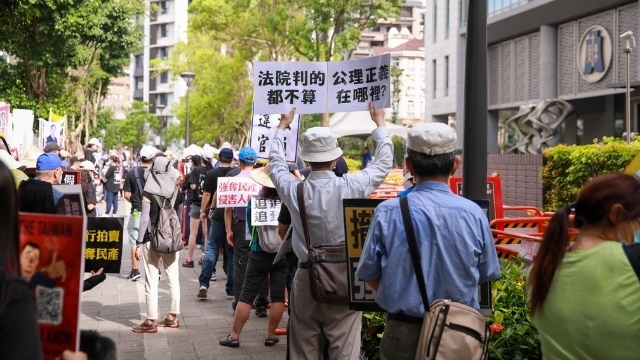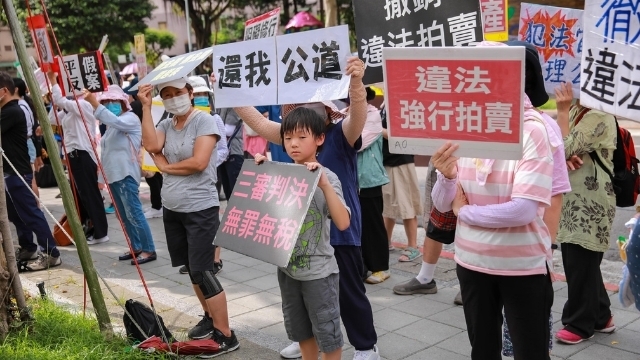11/01/2021 FRANCESCO CURTO
Two fundamental international legal principles, equality and consistency, were violated in the case of Dr. Hong and Tai Ji Men.
By Francesco Curto*

*A paper presented at the webinar “The United Nations, FORB, and the Tai Ji Men Case,” organized by CESNUR and Human Rights Without Frontiers on October 24, 2021, United Nations Day.
I am an Italian civil lawyer from Torino, Italy, who, for some years, following the good examples of Professors Massimo Introvigne (director of CESNUR) and Luigi Berzano (director of the Observatory on Religious Pluralism), also deals with intercultural and inter-religious dialogue through an organization called Fedinsieme (“Faiths Together.”)
Within the framework of this activity, in 2019, I had the pleasure of meeting in Torino Dr. Hong Tao-Tze and Tai Ji Men, a movement that conveys a culture of peace—a goal that I personally share and promote.

The spiritual sphere, as we all know, is a dimension that should not be neglected and cannot be considered in a limited way. It is fundamental for the existence and development of every human being.
We know how much the sphere of spirituality has been crucial for the development of human consciousness and knowledge—because spirituality is the bearer of knowledge (and vice versa) and is the very basis of consciousness.
In fact, for the self-realization of every human being it is important to follow, in the course of life, a certain ethical model. Religions, and spiritual movements such as Tai Ji Men, provide models for the development of the potentialities latent in every person that trigger a more intimate connection with the Divine—which then leads to the creation of an earthly society of peace.
A society of peace does not mean a society without conflicts. Diversity implies the existence of conflicts, but it is how to resolve these conflicts that is fundamental.
This is an ambitious goal, and is not without obstacles. The legal case of Tai Ji Men and Dr. Hong proves precisely that the path to a peaceful society is not without obstacles.
The documents I have reviewed on these matters showed to me some peculiarities of Taiwan’s legal system and tax system. A paradox emerged, which I believe has been extensively and more thoroughly dealt with by other scholars, who went more in depth than myself, so I will not dwell on it. Rather, I would like to highlight some of the international legal principles tax regulations and the legal system as a whole should respect in all countries, and which, in the Tai Ji Men case, did not seem to have been applied.
First of all, I would like to mention the principle of equality, i.e. the principle according to which the same treatment should be applied under the same conditions and circumstances. This also applies to taxes.
The Tai Ji Men case shows how this principle was not applied. In fact, if from 1991 to 1996, with the exception of 1992, the money contained in the so-called “red envelopes” was considered a gift and, therefore, subject to a certain tax regime (of exemption), it is not clear why only the “red envelopes” received by Dr. Hong in 1992, from his students, should be subject to a different regime. The purpose in 1992 was clearly not different from the other years.
It could be argued that the legal and administrative system of Taiwan fatally generated a distortion in the handling of the matter, but this would reveal the non-application of a second fundamental and internationally recognized principle, namely, the consistency of a legal system.
Consistency means that the system as such should not include contradictions between its parties, acts, and norms. In a complex system, as modern legal systems are, it is inevitable that “contradictions” will arise, but these should then be overcome through the application of criteria designed to address such inconsistencies. Every legal system should provide these criteria.

From my reading of the Tai Ji Men case, there is no doubt that there has been an inconsistency. This inconsistency seems to have been justified by the National Taxation Bureau (NTB) with the argument that a ruling of the Supreme Administrative Court (issued in 2006), concerning the “red envelopes” received by Dr. Hong in 1992, was final.
But this ruling is in contrast with rulings of the Supreme Court of Taiwan, which declared Dr. Hong and the Tai Ji Men movement not guilty of any tax evasion. This means that, in the Tai Ji Men case, not one only but two contradictions emerged. The first concerns the content of the rulings by the Supreme Court, which clearly stated there was no tax evasion in any year, and the ruling of the Supreme Administrative Court that found a tax evasion for the year 1992.
The second contradiction concerns the different considerations of the substance of the matter, with respect to the tax treatment of gifts of 1992 compared to gifts of other years. In fact, gifts received by Dr. Hong have always respected the same modalities (based on a millennia-old tradition of relations between disciples and master).
The principle of consistency, thus, was violated in the Tai Ji Men case, just as the principle of equality has been violated as well.
It is the reason why I commend and support the Tai Ji Men movement and Dr. Hong. They do well to call on domestic and international public opinion to be aware of their case, so that universal principles of law will be respected, and such unjust situations will not occur again in the future.
Source: Bitter Winter
